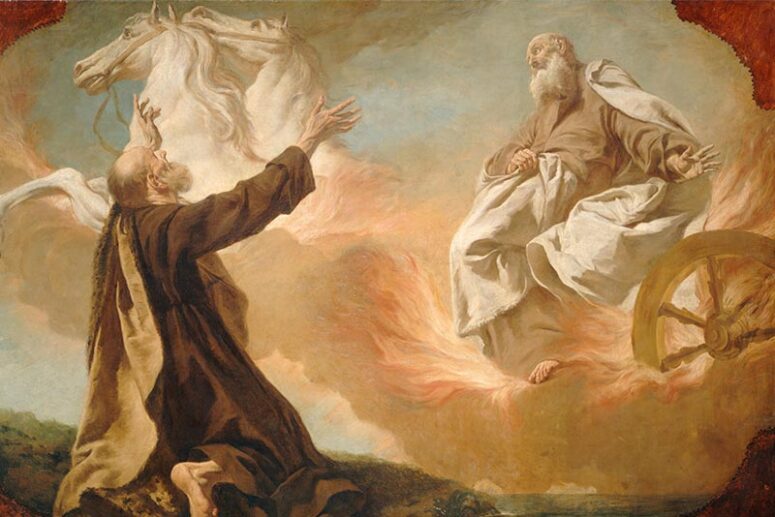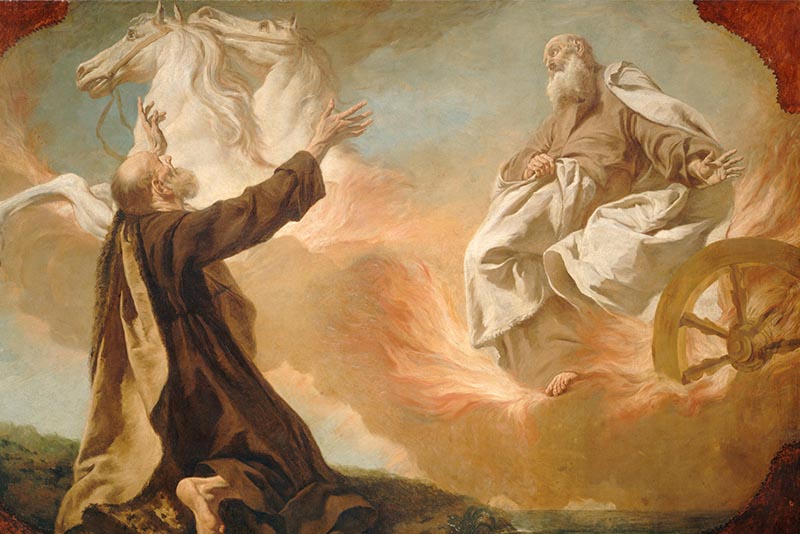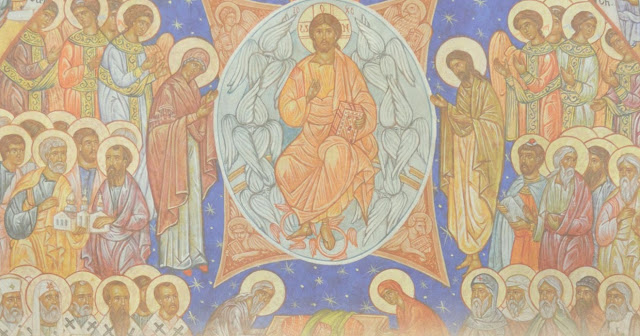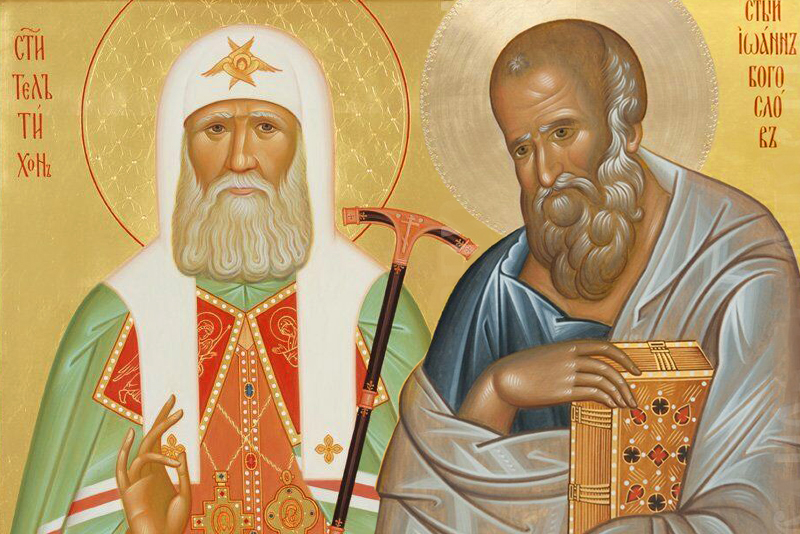
The Old Testament tells us that on the eve of His coming, the Lord would send to people the fiery preacher, Prophet Elijah. Yet the Gospel says that John the Baptist had already come “in the spirit of Elijah.” Does it mean that we should no longer expect the coming of the prophet Elijah himself?
The prophecy about Elijah’s coming to earth is contained in the final lines of the prophet Malachi, who lived some 400 years before Christ. Malachi proclaims on behalf of the Lord, “I will send you Elijah the prophet before the coming of the great and dreadful day of the Lord. And he will turn the hearts of the fathers to the children, and the hearts of the children to their fathers, lest I come and strike the earth with a curse” (Mal 4:5-6).
It seems clear that God is going to send the prophet Elijah to the earth…
But it is often assumed that in reality this passage refers to John the Baptist, about whom Archangel Gabriel once said something very similar: “He will also go before Him (Ed: Christ) in the spirit and power of Elijah, ‘to turn the hearts of the fathers to the children,’ and the disobedient to the wisdom of the just, to make ready a people prepared for the Lord” (Luke 1:17). Christ Himself once solved the perplexity of His disciples in a rather ambiguous way. When they asked him, “Why then do the scribes say that Elijah must come first?” the Lord answered, “Indeed, Elijah is coming first and will restore all things. But I say to you that Elijah has come already, and they did not know him but did to him whatever they wished […] Then the disciples understood that He spoke to them of John the Baptist” (Matthew 17:10-13).
Let us notice, however, the words of the prophet Malachi “…before the coming of the great and dreadful day of the Lord.” If he were prophesying about John, then by “the day of the Lord” he would obviously mean the events described in the Gospel.
However, was the coming of the Lord Jesus Christ into the world two thousand years ago really “great and terrible”?
Christ Himself spoke of Himself in a very different way, namely, in the words of the prophet Isaiah: “The Spirit of the Lord God is upon Me, Because the Lord has anointed Me to preach good tidings to the poor; He has sent Me to heal the brokenhearted, to proclaim liberty to the captives, and the opening of the prison to those who are bound; to proclaim the acceptable year of the Lord…” (Isaiah 61:1-2)
This is a prophecy of divine mercy and love, rather than something great and terrible. And it was that prophecy, according to the word of the Lord, that was fulfilled with His coming into the world (cf. Lk 4:17-21). “For God did not send His Son into the world to condemn the world, but that the world through Him might be saved,” says another passage of Holy Scripture (Jn 3:17).
All the holy fathers, interpreting the Bible, unanimously referred the “Day of the Lord, great and terrible” to the time of the Second Coming of Christ, which will be the final day of human history and the time of judgement. Here is what the Lord Himself says about it through the prophet Joel:
“…The day of the Lord is at hand; it shall come as destruction from the Almighty. <…> Blow the trumpet in Zion, and sound an alarm in My holy mountain! Let all the inhabitants of the land tremble; for the day of the Lord is coming … a day of darkness and gloominess, a day of clouds and thick darkness. <…> The sun and moon grow dark, and the stars diminish their brightness. The Lord gives voice before His army, for His camp is very great; for strong is the One who executes His word. For the day of the Lord is great and very terrible; who can endure it?” (Joel 1:15, 2:1-3, 10-11).
This is what day the prophet Elijah will come to announce.

So John the Baptist and Elijah are messengers of different events?
Exactly. John the Baptist, whom Christ Himself called the greatest of the prophets born of women (Luke 7:28), announced “in the spirit and power of Elijah” the First Coming of the Lord — the coming of salvation, mercy, and healing. The prophet Elijah, burning with zeal for God, at whose word the Lord cast fire on the heads of sinners (4 Kings 1:9-12), will appear to announce His Second Coming, the Day of Judgment.
Saint John Chrysostom argues: “…The Scriptures speak of two advents of Christ, both this that is past, and that which is to come; <…> the prophets too mention both; of the one, however, that is, of the second, they say Elias will be the forerunner. For of the first, John was forerunner; whom Christ called also Elias, not because he was Elias, but because he was fulfilling the ministry of that prophet.”
What was similar in their ministries?
Nearly everything, says Chrysostom: “One lived in the mountains, and the other spent his time in the desert; one was fed by ravens, and the other ate locusts; one clothed himself in sheepskin, and the other dressed in camel hair; both were rigorous and reproving: Elijah denounced Ahab, king of the Jews as ‘a troubler of Israel, and his father’s house’ (3 Kings 18:18), while John rebuked Herod and Herodias (‘thou shalt not have thy brother’s wife’) (Mark 6:18).”
According to the famous Bible interpreter, Professor of the St. Petersburg Theological Academy Alexander Lopukhin (1852-1904), when the Archangel told the priest Zacharias that his son John would act in the spirit and power of Elijah, he meant that he would preach among the Jews “with the same zeal and power … as the greatest prophet Elijah once acted among his contemporaries.”
Yet John’s sermon in no way “cancels” the prophecy about the coming of the prophet Elijah at the end of time. By the way, the prophet Malachi speaks about John the Baptist, although separately from Elijah: “Behold, I send My messenger, and he will prepare the way before Me. And the Lord, whom you seek, will suddenly come to His temple…” (Mal 3:1) This is precisely the passage quoted by the Lord Jesus Christ when speaking to the people about John (Mt 11:10).
Why is it so important to know whether or not Elijah has come yet?
This question troubled the Disciples of Christ since it was raised by the scribes, the Jewish experts and interpreters of the Scriptures, many of whom regarded Christ as an impostor and tried to accuse Him of deceit. The scribes had long questioned John as to whether he was Elijah, some other prophet, or even the Messiah Himself. When they received a negative answer, they concluded that since John was not Elijah, Jesus was not the Messiah. “If Elijah has not come, then, according to Scripture, the coming of the Saviour has not yet taken place,” explained the logic of their reasoning Blessed Jerome of Stridon.
Their error was caused by a completely false idea of the Saviour, widespread in those days among the Jews. It was believed that He would appear as a political leader, a new King David, delivering the Jewish people from Roman rule, and restoring the Jews to their state independence and former strength. It was believed that the Saviour would appear as a triumphant leader, while the prophet Elijah would proclaim judgement for all the enemies of Judah…
Very few people in those years remembered the remarkable words of the prophet Isaiah about the despised Righteous One Who has borne our griefs and carried our sorrows… and by Whose wounds we are healed (Is 53:3, 5). At the same time, this is what actually happened.
Just as John the Baptist had prophesied, the true Messiah came to suffer and atone for the sins of all repentant sinners by His death. The prophet Elijah will appear in due time with the news of the Lord’s return, not in humiliation, but in glory. He will then judge all those who have not accepted the message of salvation.
Translated by The Catalogue of Good Deeds




